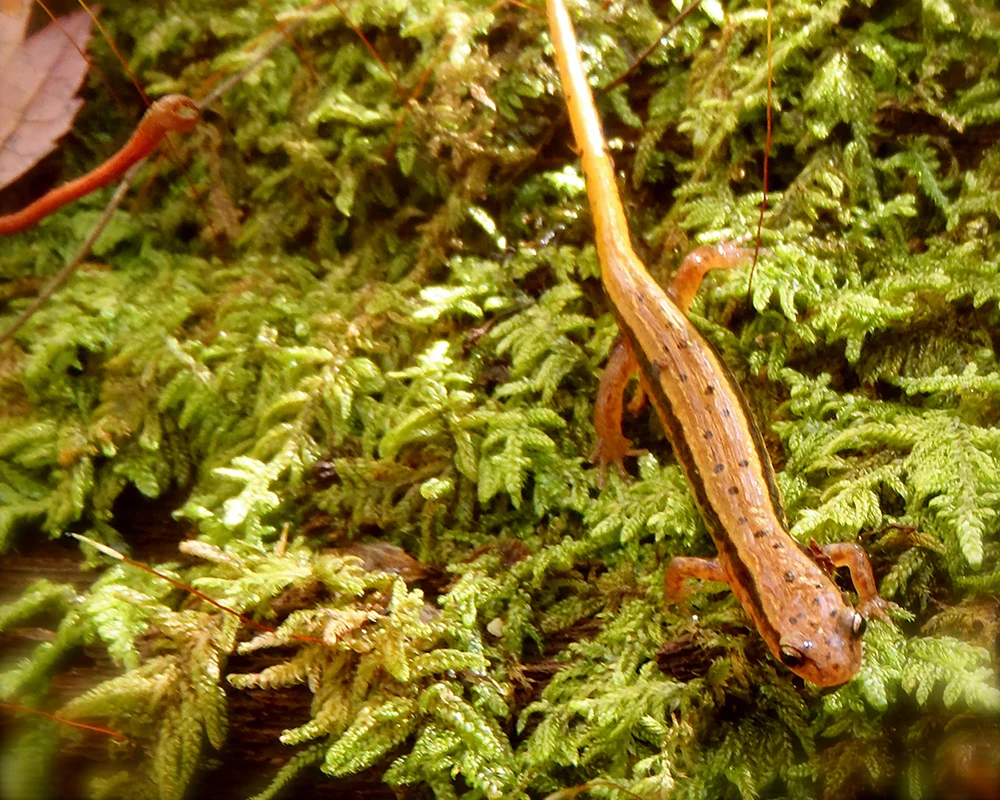This research addresses the following questions:
- How do stressors associated with global change (land use change, nutrient loading, climate change) affect food resources for organisms in streams?
- How do global change stressors affect algal vs detrital resources and patterns of energy flow in streams?
Project overview
Streams and rivers are important sites of global carbon processing. Carbon resources – both algae and terrestrially-derived carbon – support stream organisms and ecosystem functions. Our lab has focused much of our work on terrestrial carbon pathways because 1.) they support the majority of ecosystem function and production of organisms in many streams, and 2.) they are relatively understudied compared to algal-based pathways.
Terrestrially-derived particulate carbon in the form of dead leaves and wood (detritus) from the land enters streams and is colonized by bacteria and fungi (heterotrophic microorganisms). This complex of microorganisms and detrital carbon fuels food webs by supporting stream insects, fish, amphibians and other consumers. Detrital carbon is being reduced and altered in many systems due to global change (Kominoski & Rosemond 2012). Detrital carbon is consumed by organisms but is also converted to carbon dioxide by bacteria and fungi. Problematic to this important detritus-based pathway is that human-derived nutrient inputs (nitrogen [N] and phosphorus [P]) stimulate the microbially-driven release of carbon dioxide and decomposition of detritus, resulting in less available carbon for important ecosystem functions.
Healthy, functioning food webs means that energy flow from the base of the food web (algae or detritus) feeds small organisms like invertebrates and through multiple food wed connections, ultimately feeds fish or salamanders. Nutrients affect the pattern of energy flow from basal resources to top consumers (Bumpers et al. 2017) and these effects largely occur via nutrient sequestration by microorganisms (Demi et al. 2018, Demi et al. 2020).
A consistent finding across our nutrient enrichment, temperature, and food web experiments is that detrital carbon decomposes much more quickly with increases in N and P and elevated temperature (Rosemond et al. 2015, Kominoski et al. 2017, Manning et al. 2018, Usher et al. 2020), resulting in less carbon available for food and habitat in streams.
